Allergy season may be approaching but, as Kate Miller discovers, following a number of recent high-profile cases of anaphylaxis there’s an altogether more serious issue which health food stores should be aware of: food allergen labelling
The recent inquest into the tragic and totally avoidable death of Natasha Ednan-Laperouse after eating a Pret A Manger baguette focused public and press attention on legislation surrounding the issue of allergen food labelling in a way that few other cases have. The focus was not only on Pret but on the food industry as a whole, and in particular those serving direct to customers.
The natural products industry has often been ahead of the curve when it comes to food labelling, however this is no time for complacency. “We can’t rest on our laurels,” says nutritionist Dr Marilyn Glenville. “The health food industry could excel in this area in that we are able to offer foods … that are allergen-free, pre-packed and labelled, that give the customer much more choice than they can get elsewhere.”
Growing problem
More than 150 million Europeans suffer from chronic allergic diseases, and this figure is rising. While cases like Ednan-Laperouse’s are still relatively rare (around one in 1,000), in the 20 years to 2012 there was a 615% increase in the rate of UK hospital admissions for anaphylaxis, according to Allergy UK.
At the heart of this high-profile case was confusion around allergy labelling. Summing up at the inquest, Dr Sean Cummings, the acting senior coroner for West London, said he thought Ednan-Laperouse had been ‘reassured’ by the lack of specific allergen information on the packaging. The packaging on the Pret baguette was perfectly legal under present guidelines.
Sian Edmunds, partner at Burges Salmon – a legal practice which acts for businesses across the food supply chain – explains: “Under the Food Information to Consumers Regulation EU No. 1169/2011 (FIC) member states are obliged to tell consumers where a product’s ingredients contain any of the 14 specified allergens.” However, she adds, FIC differentiates between pre-packed and non-pre-packed foods. Whereas pre-packed foods must declare on a label that any of the 14 allergens are present, it is left to individual member states to decide how information about allergens in non-pre-packed foods should be conveyed to consumers.
“Non-pre-packed foods are deemed to include foods (whether loose or packaged up in advance for sale) which are packed on the premises where they are sold. So non-pre-packed food includes food sold in restaurants, food which is loose but is packed up at the consumer’s request (eg in a sandwich shop) or food which is packaged up for direct sale but is made up in a kitchen beforehand (ie somewhere like Pret).”
Therefore, instead of requiring food to be individually labelled, businesses which pack for direct sale, or sell non-pre-packed food, must provide written or oral allergy information and have clear signposting directing customers to this information. Where this is difficult, for instance on written menus which need to be kept up-to-date, the law allows flexibility to provide allergen information orally. In such cases customers must be able to obtain information from members of staff.
Serving up
Even retailers who don’t serve food but offer free food sampling to promote new products are required to comply with allergy legislation. According to the Food Standards Agency, advice should be provided in writing or signposted to where it could be obtained, for example through a member of staff or on a label. Retailers NPN spoke to were unaware of this rule, and that wasn’t the only confusion; among several retailers who served or prepared food for direct sale on-site there was general consensus that legislation was confusing and open to misinterpretation. Thankfully, those who expressed confusion were interpreting the rules more strictly than the current legislation decrees.
Since Ednan-Laperouse’s death, her parents have been campaigning to change food labelling laws, describing current legislation as having ‘played Russian roulette’ with their daughter’s life, and they’re being joined by a growing body of voices calling for change.
“There seems to be an assumption among some consumers that they will be told on a label if a food product contains any allergens,” says Edmunds. “The wide definition of non-pre-packed food means that there is scope for confusion as it relies on consumers understanding that there is a difference between retail outlets where food is packaged off-site, and outlets where it is packaged on-site. It may be very hard for a consumer to tell whether a store has a kitchen … behind the sales area and I query why they should be expected to know that there is a difference between the two.”
Edmunds says the example of Pret is a good illustration of this. “On the face of it, many of the sandwiches available for sale in Pret come in very similar packaging to some of the sandwiches you might buy in supermarkets or other large retailers, yet the way they are required to provide allergen information is very different. Relying on signs which are disconnected from the product being bought is a particularly tricky issue in a fast-food environment where consumers are often in a rush.”
Legislation confusion
Gary Trickett, chair of the National Association of Health Stores, says current legislation means there is potential for confusion among retailers: “We would expect our members to abide by the law and even go above and beyond where they can.” But, he says, if legislation is unclear, retailers may only realize they are breaking the law when they get a visit from the local authority. Trickett also says that while this is clearly not applicable to the Ednan-Laperouse case, any changes to the law have to clearly establish where the consumer ass-umes responsibility.
Chris Bellairs, vegan café owner and retailer in Exeter, says he’d welcome clearer regulations and wouldn’t be worried if current ones were tightened. “We’ve always been on top of it. Depending on how the law is changed I think it should be tightened for everyone.” He already has an allergen book for the freshly made food in his business. “It would just be a case of transferring this to the menu – and it would be worth it to make people … confident about their eating experience. They should be able to put trust in the places they buy food.” He also buys cakes from a local supplier: “She gives us all the allergens and then it’s just a case of labelling it up. It’s easy.”
Bellairs believes you have to think of customer experience: “You could see labelling as a headache, but it’s less of a headache for us than the customers’ headache of constantly having to be wary of what they eat.” His experiences as a vegan have helped him understand what it’s like to actively avoid certain foods. “Obviously we were looking to avoid dairy so I really appreciated it when I went somewhere and didn’t have to ask if it was on the menu. We learned from that.”
As the regulations gave individual member states the freedom to interpret them as they saw fit, there is nothing to stop the UK Government making changes to the existing labelling law. In the wake of the growing number of allergy cases it seems probable this will happen. Earlier this year Environment Secretary Michael Gove and Food Minister David Rutley held a round table meeting with allergy groups and industry stakeholders to discuss options for the new rules.
There appear to be many within the health food industry who feel that the time has definitely come for change. Glenville agrees, claiming that we must either tighten the regulations or plainly state that if food is prepared off-site ‘it can’t be guaranteed that it’s allergen-free’.
Edmunds adds that when people’s lives are at risk it is important to acknowledge when a system could be improved. “A step that could be taken – which would arguably have a limited impact on smaller businesses – could be to require any food which is packaged up for direct sale to consumers to carry labels declaring allergens. The information to be provided on labels where foods are packed on the premises where they are sold could be limited to allergen information only (rather than the wider labelling requirements of pre-packed foods), which would avoid smaller businesses having to provide full ingredients lists for packaged products, and would still mean that sandwich shops where food is made up to the order of a consumer … would avoid having to provide labels or full ingredients lists.”
Since the case, Pret has overhauled its procedures on allergens, although it is trialling its new regime in just one store before rolling it out nationwide – a precaution, according to Pret’s CEO Clive Schlee, in order to get processes right, since ‘the wrong label on the wrong sandwich can be worse than no label at all’.
While it is easy to look at this case and assume it has little to do with the natural products industry, the lessons from this are ones which all retailers need to be mindful of and may resonate throughout the entire food and retail industry for years to come.
For more info on allergen legislation see https://bit.ly/2H1J5f9
Due diligence
Shortly after the inquest into Ednan-Laperouse’s death, Pret a Manger was linked to a second death – that of dental nurse Celia Marsh, who had an allergy to dairy and died in 2017 after eating a vegan Super Veg Rainbow Flatbread sandwich.
This time the retailer was keen to point the blame further up the supply chain to CoYo, the supplier of the dairy-free yoghurt in the sandwich. A subsequent investigation by Pret and two local authorities found that CoYo dairy-free yoghurt contained traces of dairy protein, leading to a national recall.
However, CoYo – a staple in many health food stores – has called the claims unfounded and the recall precautionary. It points to a change in raw materials between the date that the incident happened and the testing, saying that Pret is attempting to link unrelated events in order to deflect blame.
Sian Edmunds expands: “The issue for food businesses in this type of scenario is whether they have done enough to be able to rely on the ‘due diligence’ defence that they ‘took all reasonable precautions and exercised all due diligence to avoid the commission of an offence’. Food businesses should be clear about exactly what they are ordering from suppliers and ensure that they have contractual provisions in place … that their suppliers are required to deliver products which meet the relevant specifications and that they have complied with the relevant food labelling, food safety and hygiene regulations.”
Maintaining strong relationships with suppliers and putting processes in place to check what is being supplied is also advisable, warns Edmunds, to help evidence that the due diligence test can be relied upon in the event that an incident arises.
Dr Marilyn Glenville’s guide to Allergy vs intolerance
Food allergy: a specific response by the immune system to a substance (inhaled, touched or eaten) that it mistakenly identifies as harmful. The allergy triggers the release of Immunoglobulin E (IgE) antibodies which attach to ‘mast’ cells and cause the release of histamine,
the chemical which causes a contraction of the muscles around the air passages (an attack of breathlessness or asthma), local swelling and skin irritation, and, if the attack is serious enough, a drop in blood pressure.
This type of allergy is tested by blood and looks at the levels of IgE antibodies. A skin prick test can also be used, and the allergens are tested on the arm or the back; a positive reaction would be shown by a hive or wheal on the skin.
Food intolerance: another type of reaction to food, also known as food sensitivity or non-allergic hypersensitivity. With these reactions there can be a delay in the onset of the symptoms (from four to 72 hours), and the foods are often eaten in larger amounts and more frequently. Symptoms can be varied, from bloating, diarrhoea, constipation and flatulence to lethargy, arthritis, fatigue, skin rashes, eczema, joint and muscle pains, recurrent infections, anxiety, depression, insomnia, irritability, water retention, headaches, migraines and generally feeling unwell.
Non-food allergies
Of course, food is just one of the allergy concerns facing consumers. According to Haymax founder Max Wiseberg the vast majority of customers who get seasonal allergies don’t prepare. People can suffer from non-food allergies throughout the year. The pollen count season is normally March to August but, depending on environmental factors, can start as early as January and end as late as November. “All the people in the trade recommend taking antihistamines two to three weeks before the start of the season, but most people just keep going and think ‘Maybe this year I’ll be alright’, then get symptoms and dive into the shop demanding remedies.”
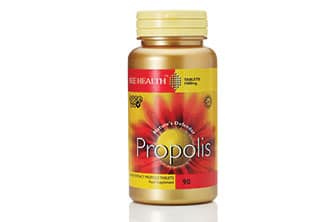 Nature’s Defender
Nature’s Defender
Bee Health Propolis
Tel: 0800 731 6006
E-mail: [email protected]
www.beehealthpropolis.com
Propolis is a natural substance collected by honey bees from buds and trees containing tree resin, essential oils, vitamins, minerals and phytonutrients.
Propolis offers an array of benefits for many ailments and allergies and is one of nature’s richest sources of bioflavonoids for immune support.
Bee Health guarantees the bioflavonoids present are naturally occurring flavonoids, with no synthetic substances added. This unique natural product is made in the UK and subject to tests for potency and quality. Available as tablets, capsules, liquids, cream, throat spray and lozenges.
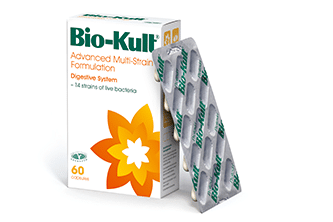 Bio-Kult
Bio-Kult
Bio-Kult
Tel: 01460 243230
E-mail: [email protected]
www.bio-kult.com
Over the last 50 years there has been a substantial increase in the incidence of allergic diseases, such as eczema, food intolerances and hay fever. Allergy is a malfunction of the immune system, in which harmless substances are interpreted as being harmful, and the immune system reacts incorrectly towards them. An approach to improving the mixture of species within the gut microflora could be the use of live bacteria supplements. Bio-Kult is a scientifically developed, advanced multi-strain formulation containing 14 live bacterial cultures, proven to survive the high acidity of the stomach.
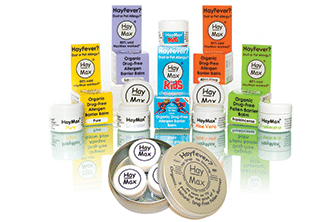 HayMax™ Organic, Drug-Free, Allergen Barrier Balms
HayMax™ Organic, Drug-Free, Allergen Barrier Balms
HayMax™ Limited,
Tel: 01525 406600
E-mail: [email protected]
www.haymax.biz
HayFever? Dust or Pet Allergies? Organic, drug-free HayMax™ allergen barrier balms have been on the market for 14 years and have won over 40 awards for a reason: they are simple, good value and do what they say on the box! Proven to trap over 1/3 of pollen as well as dust and pet allergens before they get up your nose. Suitable for Pregnant, breast feeding women and children as well as drivers and machine operators. 3 for 2 tin and Frankincense exclusive to independents. Lots of TV, Radio and press marketing coming this season. Available at many wholesalers – great margins. Free POS and web listing available from HayMax.
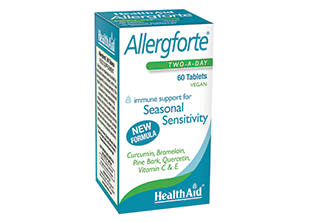 Allergforte®
Allergforte®
HealthAid Ltd
Tel No: 020 8426 3400
E-mail: [email protected]
www.HealthAid.co.uk
Allergforte® – Boost your body’s immune system – Allergies are versatile. They can show up just about anywhere in your body and create an incredible variety of symptoms. This often leads to physical and emotional distress. Allergforte contains natural antioxidants antihistamines and anti-inflammatories that can help with the symptoms of allergies, its unique formulation containing natural essential ingredients such as Vitamin C, Quercetin and Bromelain, helps to combat the misery of common allergies and make the condition more bearable. Allergforte is suitable for vegans and vegetarians. Allergforte, retails at £10.49 for 60 tablets. Contact HealthAid Ltd on 020 8426 3400 for purchase and stockist information or visit www.healthaid.co.uk
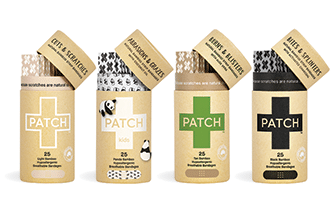 Patch strips
Patch strips
Luba Distribution LTD
Tel: 0330 133 0431
E-mail: [email protected]
www.patchstrips.com
Multiple award-winning PATCH Bamboo Strip Bandages is getting major attention from the European market for its amazing hypoallergenic, zero waste packaging and compostable solution that aims to fix a major market problem!
When father-of-two and PATCH founder, James Dutton discovered his son had an adverse reaction to an adhesive bandage, he quickly realized his son was not alone. 1 in 4 people cannot wear normal plasters due to reactions and skin sensitivities. PATCH is an advanced new range of natural adhesive plasters designed to support wound recovery with natural bamboo fibre and mineral based Pressure Sensitive Adhesive.
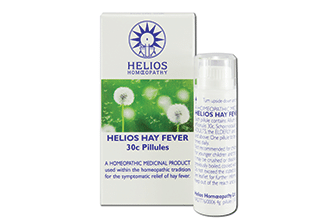 Helios Hay Fever
Helios Hay Fever
Helios Homeopathy Ltd
Tel: 01892 537254
E-mail: [email protected]
www.helios.co.uk
Multi award winning Hay Fever from Helios contains three homeopathic remedies Allium cepa, Euphrasia and Sabadilla. When combined these three remedies have a long history of traditional use to bring gentle, natural relief of typical hay fever symptoms such as sneezing, eye irritation and a tickly or sore throat. Being natural Helios Hay Fever is without any known side effects and is suitable for adults and children from 2 years upwards. Hay Fever comes in sucrose pill form in our easy to use, single dose dispenser.
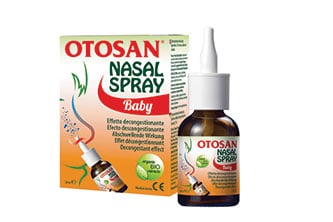 Otosan Nasal Sprays
Otosan Nasal Sprays
World foods brand management ltd
Tel: 01782 366080
E-mail: [email protected]
www.wfbm.co.uk
If your customers are looking for a natural and effective alternative to chemical Antihistamines, then Otosan have the answer. Long term use of vasodilators and some antihistamines can result in several side effects including a rebound effect which can aggravate the condition. Otosan adult and baby nasal sprays effectively cleanse and soothe the nasal passages helping reduce the symptoms of hay fever without the possibility of long-term side effects.
Otosan baby spray is suitable from birth providing natural relief for all the family. For more information call Andy Phillips on 01782 366080 or email [email protected]
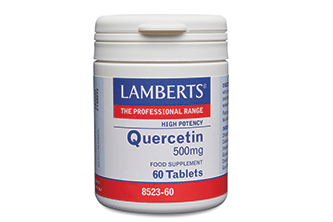 Lamberts® Quercetin 500mg Natural plant sourced high potency flavonoid
Lamberts® Quercetin 500mg Natural plant sourced high potency flavonoid
Lamberts Healthcare Ltd,
Tel: : 01892 554313
E-mail: [email protected]
www.lambertshealthcare.co.uk
Lamberts® Quercetin is extracted from a natural plant source and each tablet provides a full 500mg of pure quercetin. Quercetin is found in many fruits and vegetables, with apples and onions contributing most to the typical UK diet. Each 500mg tablet provides significantly more quercetin than 1 kilo of apples. Quercetin is probably the most researched bioflavonoid as it is recognized as being more active in the body than most others, including influencing the production and release of histamine.
Our high strength, one-a-day Quercetin 500mg tablets are specially coated for ease of swallowing.
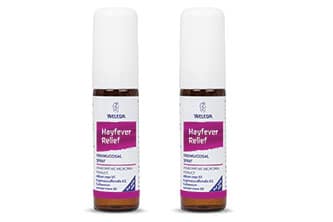 Hayfever Relief Oral Spray
Hayfever Relief Oral Spray
Weleda UK Ltd
Tel: 0115 9448200
E-mail: [email protected]
www.weleda.co.uk
Weleda’s award-winning homeopathic Hayfever Relief oral spray (£10.95 20ml) is manufactured using plants grown by Weleda to Demeter-certified standards. Containing potencies of Euphrasia, Allium cepa and Gelsemium, it’s indicated for the symptomatic relief of hayfever and allergic rhinitis. Allium cepa is from fresh onion bulb grown biodynamically in Weleda’s Derbyshire herb gardens, whilst Euphrasia officinalis is from Weleda’s gardens in Germany. Gelsemium sempervirens, or yellow jasmine, is sourced from the wild in North Carolina. Suitable for children over 12, this vegan spray is easy to use – just 1-2 metered doses three times daily, onto the tongue.
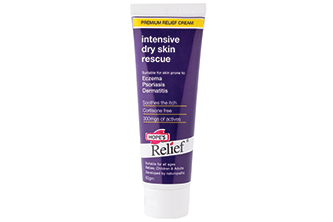 Hope’s Relief Intensive Dry Skin Rescue
Hope’s Relief Intensive Dry Skin Rescue
Mahi Naturals Ltd
Tel: 020 88 864 001
E-mail: [email protected]
Those with allergies can be prone to dry skin and eczema, so help your customers find a gentle and effective range that they can trust. Hope’s Relief therapeutic skincare is a multi-award winning range to help relieve itchy, dry skin and is specially formulated for skin prone to eczema, psoriasis and dermatitis. As an effective, natural alternative to cortisone and other medicated treatments, Hope’s Relief is suitable for long term to soothe the itch and regenerate skin. No.1 in Australia, the growing range includes haircare and cleansers and is safe for babies, children and adults and trusted by mums worldwide.





